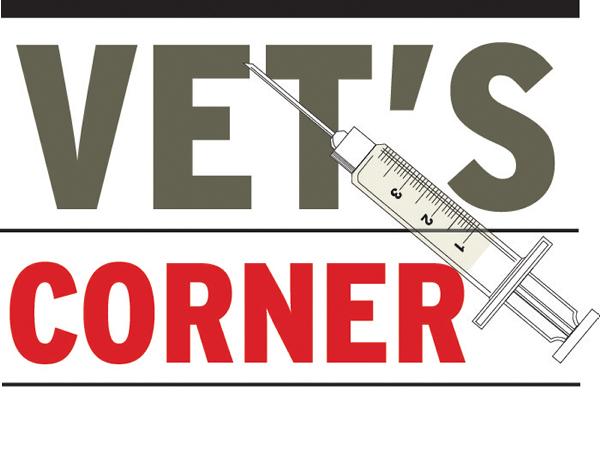Well-fed healthy calves will deal with parasites more effectively than thinner less-healthy ones – good nutrition and early calf health is vital.
Lungworm will be a bigger risk earlier this summer, because of the late wet spring we had. The recent wet warm weather will encourage dispersion of lungworm larvae on pastures. Keep a close ear out for coughing in animals of all ages. Hoose is becoming increasingly more common in older animals and cows; immunity to lungworm only lasts six months.
Anthelmintic resistance is an inevitable fact. It will happen to every wormer we will ever develop.
Every time we worm, we kill off susceptible worms and leave resistant worms to multiply, until we reach the point where all the worms are resistant.
Grazing management has a big role to play. Try to put young calves on ground that has been used as little as possible in the first half of the previous grazing season.
Strategic worming is the traditional method where calves are wormed regularly until mid-July. This gives good stomach worm control, but not lungworm control. It also increases anthelmintic resistance. It is designed to work where calves are kept on the same pasture till mid-July. Where calves are moved around, worming may need to go on all season.
Tactical worming is a newer method of control. Calves’ liveweight gain and faecal worm egg count are regularly monitored.
Calves are wormed where growth is below target and there are worm eggs in their dung. This method reduces anthelmintic use and delays the development of resistance.
Worms that are allowed to escape treatment will out-compete resistant worms, slowing the development of resistance. This is called refugia.
The two most popular ways to do this are:
Turn wormed calves back on to the contaminated pasture they just came from for a week. This is of limited effect in wormers with persistent action, such as ivermectins. Leave the strongest 10% of the group un-wormed.Calves in the second half of the grazing season need to be closely watched for signs of lungworm, hoose or husk and treated immediately.
Your vet will be happy to help you to plan an appropriate parasite control programme.
Animal Health Ireland has excellent guides to parasite control at www.animalhealthireland.ie.
Kevin Meaney holds a certificate in dairy herd health and works with Southview Veterinary Hospital in Clonmel, part of XLVets. XLVets is a group of progressive practices who are working together to achieve a better future for agriculture and veterinary in Ireland. For further information, go to www.xlvets.ie.
Well-fed healthy calves will deal with parasites more effectively than thinner less-healthy ones – good nutrition and early calf health is vital.
Lungworm will be a bigger risk earlier this summer, because of the late wet spring we had. The recent wet warm weather will encourage dispersion of lungworm larvae on pastures. Keep a close ear out for coughing in animals of all ages. Hoose is becoming increasingly more common in older animals and cows; immunity to lungworm only lasts six months.
Anthelmintic resistance is an inevitable fact. It will happen to every wormer we will ever develop.
Every time we worm, we kill off susceptible worms and leave resistant worms to multiply, until we reach the point where all the worms are resistant.
Grazing management has a big role to play. Try to put young calves on ground that has been used as little as possible in the first half of the previous grazing season.
Strategic worming is the traditional method where calves are wormed regularly until mid-July. This gives good stomach worm control, but not lungworm control. It also increases anthelmintic resistance. It is designed to work where calves are kept on the same pasture till mid-July. Where calves are moved around, worming may need to go on all season.
Tactical worming is a newer method of control. Calves’ liveweight gain and faecal worm egg count are regularly monitored.
Calves are wormed where growth is below target and there are worm eggs in their dung. This method reduces anthelmintic use and delays the development of resistance.
Worms that are allowed to escape treatment will out-compete resistant worms, slowing the development of resistance. This is called refugia.
The two most popular ways to do this are:
Turn wormed calves back on to the contaminated pasture they just came from for a week. This is of limited effect in wormers with persistent action, such as ivermectins. Leave the strongest 10% of the group un-wormed.Calves in the second half of the grazing season need to be closely watched for signs of lungworm, hoose or husk and treated immediately.
Your vet will be happy to help you to plan an appropriate parasite control programme.
Animal Health Ireland has excellent guides to parasite control at www.animalhealthireland.ie.
Kevin Meaney holds a certificate in dairy herd health and works with Southview Veterinary Hospital in Clonmel, part of XLVets. XLVets is a group of progressive practices who are working together to achieve a better future for agriculture and veterinary in Ireland. For further information, go to www.xlvets.ie.






 This is a subscriber-only article
This is a subscriber-only article










SHARING OPTIONS: